- Home
- Brian Garfield
Marshal Jeremy Six #4 the Proud Riders Page 11
Marshal Jeremy Six #4 the Proud Riders Read online
Page 11
Bob Tell said, “Won’t folks start to miss Dominguez and your night man?”
“I’ll take care of that. I’ll be coming by here myself, as often as I can do it without raising people’s eyebrows. But you three are going to have to keep your guns loaded and your eyes open.”
“We’ll do that,” Bob Tell said.
“Good enough.” Six got off the desk and walked over to the door. “Hold the fort until I get my men posted next door. It will take a half hour or so. Whichever one of you goes out for food will have to pick up enough grub for my two men next door—and make damn sure you don’t arouse anybody’s suspicions. I’d suggest you have your wife do the cooking, Bob. All right, that’s about it. Any questions or suggestions?”
Bob Tell said in a whisper-dry voice, “Tell Dominguez to bring me a sack of pipe tobacco, will you?”
“Sure.” Six nodded to them and walked out.
Wishing he felt as confident as he had acted for their benefit, he went up the street as far as the Drover’s Rest and turned in there.
Lamps spread their pale illumination around under the low ceiling. Along the bar men clustered and talked with subdued animation: subdued, because the Lockharts sat at the end of the room with their guns bristling, playing cards—and animation because everyone was excited by the upcoming race. The pungent atmosphere pressed against Six’s face: the air was stale with tobacco smoke. On the back bar mirror, odds for the race were chalked up:
CHANDLER 5 to 2
ROSE 2 to 1
CHAVIS 3 to 1
MORLEY 6 to 1
HALLERAN 6 to 1
RILEY 8 to 1
KEENE 8 to 1
MATTHEWS 12 to 1
UDRAY 15 to 1
STANLEY 15 to 1
Six gave the odds-board a moment’s curious attention. He had been here last evening, and the odds at that time on Chavis’ horse had been 12 to 1. Somebody must have seen Chavis’ horse run; word must have got around that Chavis had a horse worth betting, because the odds had dropped severely.
As Six approached the bar, Hal Craycroft came away from a consultation with three cowboys, and while Six watched him the bartender reached up, scrubbed out the top two figures and replaced them. The first three contenders now became:
CHANDLER 2 to 1
ROSE 2 to 1
CHAVIS 3 to 1
The odds on Morley and Halleran went up to 8 to 1. Six thought, It’s a three-way race for certain, then. Nobody seemed to take any of the other seven horses seriously. He heard someone say, “Tim saw that Paradise fellow ride Chavis’ palomino down at Arroyo Seco yesterday. Hear him tell it, that stud’s going to be the horse of the year. I’m putting my stake on him.”
“Not me. I seen Chandler’s black and that Easterner’s sorrel run around Zim’s pasture down there. I figure it’s even money, one of them again the other. But if it rains between now and the Fourth, I’ll put my money on Chandler’s black. None of them dude thoroughbreds can handle a cross-country race if it’s all muddied up. Get all tangle footed. Takes a sound cow-country horse to run through bog-sand.”
Six caught Hal Craycroft’s eye; Craycroft came down to the end of the bar. Six said, “How are the stakes building up?”
“We got the purse up to a thousand dollars. I reckon there’ll be four thousand, maybe forty-five hundred all told in side-bets. Paradise came in a while ago, bet two hundred on Chavis’ horse and another hundred-and-fifty of Chavis’ money.”
“Where’d Tracy get that kind of money?”
“Sold his three best saddle horses, I understand.”
Six shook his head, worried. “Tracy’s riding everything he owns on this horse race. That’s no good, Hal—suppose the damned horse steps in a gopher hole?”
“I guess when a long shot’s the only shot you’ve got, you shoot it.”
Six reached into his pocket and counted out coins. “I can spare thirty dollars. Put it on Chavis’ horse for me, will you?”
At first surprised, Craycroft began to grin. “Sure, Jeremy.”
Six added mildly, “And be sure you keep those stakes locked up tight. Wouldn’t want anybody to steal the whole cache.”
“I’m keeping it under my pillow, and a gun with it.”
“How about the Lockhart boys? They betting heavily?”
“Not a cent.”
Six frowned. Then why in hell are they hanging around here? Was it possible the Lockharts knew about the Wells Fargo army payroll? He watched the three red-haired Lockharts across the room. They played cards quietly, unperturbed, seemingly untouched by the excitement around them.
The horse race was the biggest event of the season in Spanish Flat; it had generated a fever of interest. Voices in the saloon were tense and eager.
Craycroft said softly, “Still worried about Tracy Chavis, ain’t you, Jeremy?”
“Not just Tracy. I’m thinking about Connie and their little girl.”
“Connie’s backing him up all the way, I understand.” Craycroft reached across the bar and touched Six’s sleeve. “Look, this country’s full of luck. Some find it, some don’t. You can’t bust yourself up over this. It’s Tracy’s gamble.”
“I guess it’s got to be,” Six acknowledged. He nodded to Craycroft and pressed forward, making a path through the crowd across the busy flow of people by the door, and reached the front wall where Dominguez stood, towering above the men roundabout. Dominguez’ brown round face was expressionless; his arms were folded and a length of straw poked out of the corner of his mouth.
When Six came up to him, the big deputy said mildly, “No trouble. They ain’t made a move.”
“I’ve got another chore for you,” Six told him. “Round up Bill Dealing and get down to Hank’s gun shop.”
It made Dominguez stand up straight, take the straw from his mouth and toss it to the floor. He said, “The payroll came, huh?” His brown eyes glittered.
“Yes.”
“Earlier than we figured.”
“Can’t be helped,” Six said. “You know what to do. Spread the word that you and Bill are heading out of town.”
“Up to Aztec to pick up a prisoner. That’s the story, right?”
“Yes. You’re expected back by the Fourth, if anybody asks. And make sure nobody sees you going into the gun shop.”
“Right.” Dominguez turned and slipped out of the saloon.
Another tall shape was moving through the crowded room. Six turned and watched: that was Mr. Clete. Clete had a slip of paper in his fingers. He casually folded it together and pressed it beneath his palm. Curious, Six watched the tall bodyguard’s derby-hatted figure smash through the crowd, brutally beating people aside with shoulders and elbows.
Mr. Clete finally reached the back card table. Six couldn’t see very well over the heads of the crowd; he had an occasional glimpse of one red-topped head at the card table. Mr. Clete stood there, evidently watching the game for a few minutes; then he turned and came back, following the same path, heading for the door. Six moved closer to the door and had a clear look at Mr. Clete. Both of the man’s hands were open and empty. Mr. Clete went outside.
Maybe it meant nothing. Maybe, on the other hand, Mr. Clete had been delivering a mysterious message. Angry with the accumulation of intrigue and mystery that seemed to weigh more and more heavily on events, Six rolled his shoulders around and pushed through to the outside boardwalk. When he hit the open air he waited a moment for it to clear the smoke and haze out of his system, then he turned to his right and went down the block.
John Paradise was riding up the street on a big, deep-chested palomino stallion. Paradise reined across the intersection and halted beside the walk. Six couldn’t help but admire the long-legged golden horse.
“Tracy’s?”
“Yes. Handsome animal, isn’t he? I’m going to win that race, Marshal.”
“I hope you do,” Six replied evenly. “But not for your sake.”
“I guess I can understand that,” Paradi
se said. He seemed in no hurry to be on his way. He glanced both ways. No one was in earshot. In a casual voice, he said, “I was up the street half an hour ago or so. Saw the stage pull up and unload.”
Six stiffened. “And?”
“I’ve seen army payroll sacks before,” Paradise remarked. “And that was a pretty big pile of them.”
“You could be wrong.”
“Maybe. But think about this. Take the lid off the honey jar and the flies are bound to come swarming around.”
Paradise lifted the reins and rode off. Six stood flatfooted, watching his shape recede, and began to wonder again about Paradise. If the gunfighter had found out about the payroll in the Wells Fargo office, and if he planned to steal it, would he have spoken about it to Six? Doubtful. But then, Paradise was a cocky little bantam rooster, and it might be just his style to taunt Six.
Down the street, Mr. Clete’s tall figure was turning into the hotel. A light burned on the second floor in the main suite—Harry Rose’s rooms. Six turned in the other direction and found himself facing the lamps of the Wells Fargo office. Beyond that, Paradise was riding away on Chavis’ big palomino.
Six had the feeling that the Fourth of July was going to be one hell of a day in Spanish Flat.
Chapter Twelve
When Paradise rode out of town, shortly before midnight, he had it in mind to give the palomino a leg-stretch, and at the same time he wanted to go over the race course once again. He wanted to be as familiar as possible with the route of the race. He had seen some of the others doing the same thing during the day, notably Chandler on the big black and Morley and Halleran on their entries. He had had a chance in the last two days to study all the competing horses, and it was pretty clear that the competition was limited to the top three horses—Chandler’s, Rose’s, and Chavis’. And, Paradise found, his judgment had been confirmed by the betting odds-makers.
The race would start, perhaps fittingly, at the intersection of streets in front of the Drover’s Rest. That was where the finish-line was, as well. From the Drover’s Rest, the horses would travel north along the main street, straight out of town. At the far end of Zimmerman’s big pasture, the route turned sharp to the east, and followed the twin-rutted Turkey Track ranch road three-quarters of a mile around a series of easy bends. At the base of the foothills, below the shadow of the Mogul Rim, the course once again turned to the right, and wended southward, climbing into the foothills along what had once been a Butterfield Overland road. The road was now fallen into disuse; its surface was rocky and broken.
The half-way point was the top of a bald hill which overlooked Spanish Flat from the east. From this point, a horseman could see the town quite plainly: and, in turn, he could be seen from the town. The spectators would be able to follow the course of the race at its half-way point—those of them with field glasses, at least.
From the hilltop the path went down through a tight succession of hairpin switchbacks that brought it, finally to the property line of a dairy farm in the lowlands. Into this meadow the marked route turned, humping across little grass hills until it arrived belly-up against a low white fence. The horses would have to jump the fence here, make a sharp turn twenty yards beyond, pass between two close-set sycamores and then leap across a drainage ditch. After that it was a quick series of back-and-forth swings to thread a grove of trees. And then, finally, breaking out of the meadow, the route turned toward the southern end of town, swung into the lower end of main street, and covered the last quarter-of-a-mile along the straightaway of the street itself, ultimately arriving back where it had started, at the finish line.
That was the route Paradise followed tonight. He rode at a canter, letting the horse get used to the terrain and the turns. The ground was dry and hard-packed most of the way, and that troubled him slightly; a brief rain would have made the earth softer and might have given him an advantage. The palomino had been a wild horse until recently, accustomed to all kinds of terrain but unaccustomed to the weight of saddle and rider, unaccustomed to the hoof-protection of horseshoes. It might have had a more comfortable run on softer ground. On the other hand, Rose’s thoroughbred was definitely a hard-track racing horse; rain would have slowed the big sorrel down.
But there was no rain, and no chance of it from the look of the sky.
Coming down out of the foothills, he let the palomino have its head entering the dairy-farm meadow. The moon was up, in its first quarter; the light was poor, but good enough for riding. The palomino carried him across the grassy undulations of the ground toward the heavier massed silhouettes of the trees. Where was that fence? It was hard to see in the night. Not wanting to risk the palomino’s legs, Paradise reined back to a slow trot.
Surely that fence was near. Then, abruptly, he spied it, faintly aglimmer in the shadows. He walked the palomino up to the fence and let the horse get used to it; then he backed off, gigged the stallion, and made his run at the fence.
The palomino cleared it handsomely with a graceful spring. Its leap was so smooth that Paradise hardly felt it bunch up. On the far side, he slowed the pace sternly, swept around the marked bend, cantered between the two sycamores, and urged the palomino to a gallop. Stretching out its long legs, the palomino cleared the seven-foot drainage ditch without losing stride, and galloped forward into the grove of trees.
Highly satisfied, Paradise slowed down to a trot and threaded the grove, following the red-flag-marked path with difficulty in the deep shadows. But that would be no problem in daylight.
He dropped the knotted reins onto the saddlehorn and leaned forward to pat the horse on the neck. “You’ll do fine,” he said aloud.
Then, suddenly, he was aware of motion ahead of him. Someone else was on the trail. Straightening in the saddle, Paradise let his hand fall to his gun butt.
It was, he saw, the little jockey, Jay Macquarie. Paradise relaxed his grip on the gun, reached for the reins and picked them up to halt the horse.
Macquarie reined around to face him. It was hard to see his face in the night, but he seemed to be smiling amiably. His abrasive Brooklyn voice cut through the dark:
“Tryin’ out the turf, eh? Me likewise. I don’t know if you noticed it, but there’s a hell of a chuck hole up there on the hill, just before you hit the top. Over on the left-hand side of the road. If you get pushed over to that side, watch out for it.”
“Why,” said Paradise, “I’m obliged.” He had, in fact, seen the chuck hole; but that didn’t make Macquarie’s gesture any the less genuine.
Macquarie said, “Another thing. I watched you go over this section this afternoon. You’re a good man on a horse, and that stud of yours is going to be hard for me to beat. But there’s a few things you still need to learn. One thing, lean over a little more when you go into a turn. Give the horse as much help as you can. And don’t forget you may be hitting some of these narrow places neck-and-neck with somebody else, so don’t figure on having the whole trail to yourself. You may have to make your knees pretty skinny to get past them trees without smashin’ a kneecap. If that happens, lift your knees up and forward and clamp them around your pommel. It’s narrower than the girth. That way if anything gets scraped, it’ll be your boots, and that won’t hurt so much. Get me?”
Paradise said, “Why are you telling me this?”
Macquarie cupped his hands to light a thin cheroot. The match’s flame reflected frostily on the surfaces of his eyes. He said, “This is the sport of kings, pally. Maybe we ain’t all of us to the manor born, but I never in my life ran a crooked race. I like this game, but there ain’t no kick in it unless the competition’s as good as it can be. I intend to beat you, pally, but I want to beat you the honest way. Get me?”
“I guess I do,” Paradise said, and smiled briefly.
“One other thing,” Macquarie said, “and this is the most important. Don’t let that horse run away from you. Keep him down to a nice easy pace the first four and a half miles or so. That’s bring you right up to here,
where we are now. From here on, let him go. Give him everything you’ve got to give him, because it’s from here to the finish line that you’ll have to make a run for it. Up to here it’s a long-distance race and you’d be smart to jog it. Otherwise your horse’ll be windbroke by the time you hit the home stretch. So don’t try to outrun everybody else on the first half-mile. If you do, you’ll lose the race before you get started.”
“Uh-huh.”
Macquarie pointed to Paradise’s holstered six-gun. “You figure to wear that gun in the race?”
“I guess I will.”
“Gun, holster, and gunbelt with cartridges. That’s maybe six pounds extra weight. Could make a difference.”
Paradise thought, You may be right, friend, but I’ll have to take that chance. He wasn’t going to ride naked through a big crowd. On that empty race-track he’d be a sitting duck for any trigger-happy gunman waiting to pick him off from the sidelines. And, he recalled, the Lockharts were still in town.
He said, “I’m obliged to you again.”
Macquarie abruptly reached into his left sleeve with his right hand. Moonlight glinted fragmentarily on metal. Paradise stiffened: his spine became rigid, his hand became wholly still.
Macquarie said easily, “You’ve seen these before. Derringer. Why don’t you carry one of these? Only weighs a few ounces.” He grinned and put the little gun back into his sleeve.
Paradise said, “You came within a half-second of dying, right there.”
Macquarie’s eyes widened. “Holy Judas,” he muttered. “I didn’t think. Sure, I heard about you—”
“All right, forget it. But never pull a gun on a man unless you intend to use it.”
“I never shot anybody in my life.”
“Try to keep it that way, then.”
“Yeah.” Macquarie swallowed, visibly shaken.
“Thanks again for the advice,” Paradise said gently. “I’ll give you a good race, friend.”

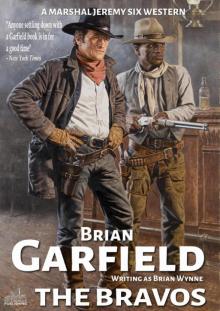 Marshal Jeremy Six #3
Marshal Jeremy Six #3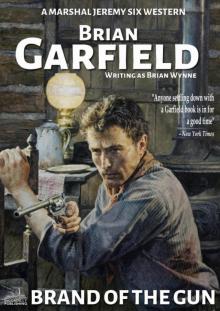 Marshal Jeremy Six #6
Marshal Jeremy Six #6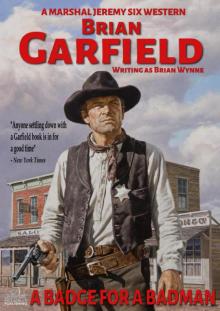 Marshal Jeremy Six #5
Marshal Jeremy Six #5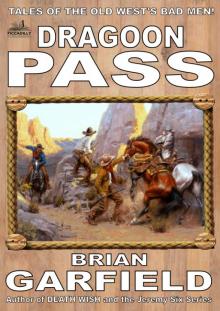 The Outlaws 2
The Outlaws 2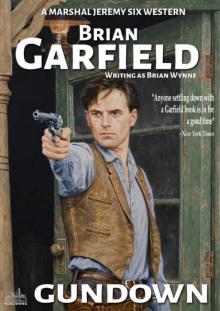 Marshal Jeremy Six #7
Marshal Jeremy Six #7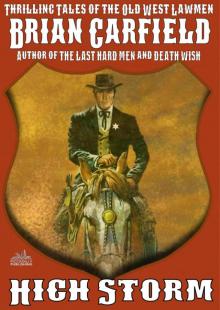 The Lawbringers 4
The Lawbringers 4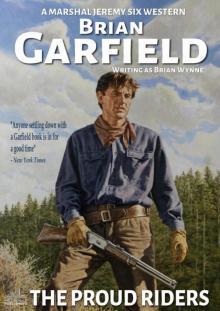 Marshal Jeremy Six #4 the Proud Riders
Marshal Jeremy Six #4 the Proud Riders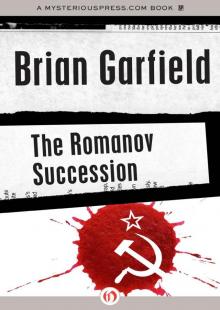 The Romanov succession
The Romanov succession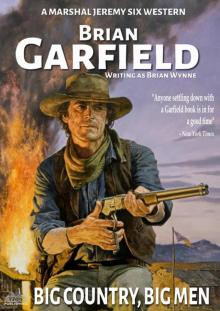 Marshal Jeremy Six #8
Marshal Jeremy Six #8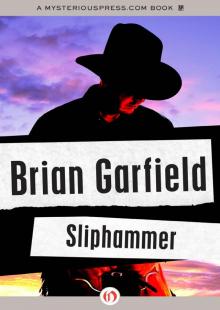 Sliphammer
Sliphammer Line of Succession
Line of Succession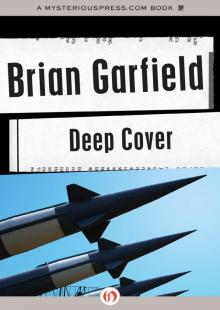 Deep Cover
Deep Cover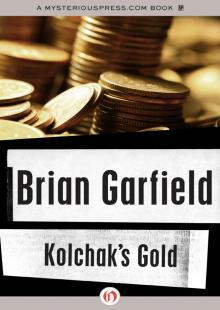 Kolchak's Gold
Kolchak's Gold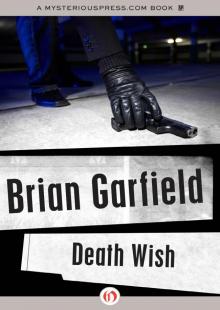 Death Wish
Death Wish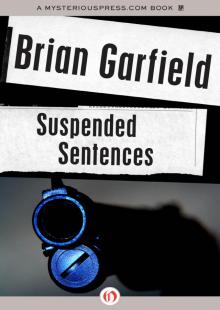 Suspended Sentences
Suspended Sentences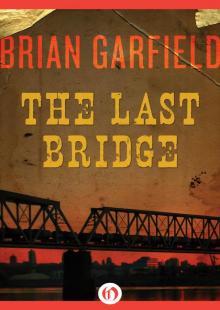 The Last Bridge
The Last Bridge Relentless
Relentless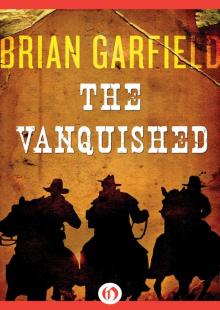 The Vanquished
The Vanquished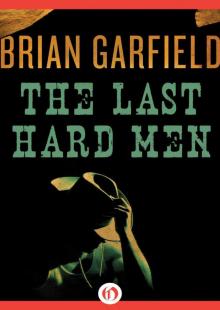 The Last Hard Men
The Last Hard Men Hit and The Marksman
Hit and The Marksman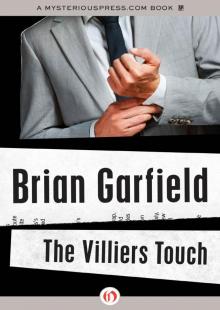 Villiers Touch
Villiers Touch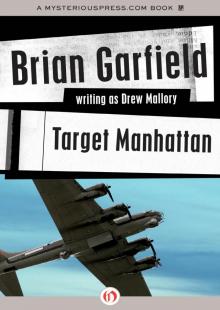 Target Manhattan
Target Manhattan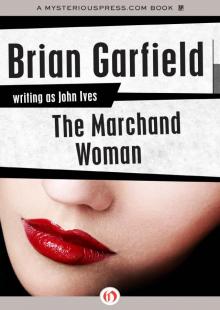 Marchand Woman
Marchand Woman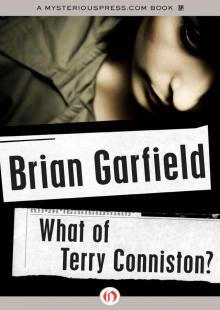 What of Terry Conniston?
What of Terry Conniston?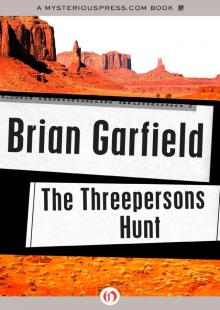 Threepersons Hunt
Threepersons Hunt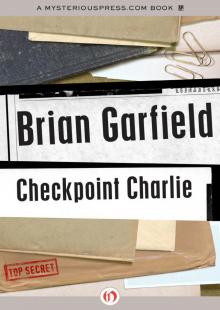 Checkpoint Charlie
Checkpoint Charlie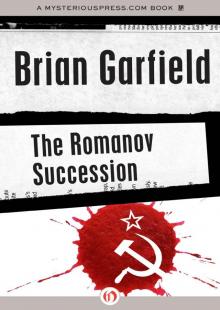 Romanov Succession
Romanov Succession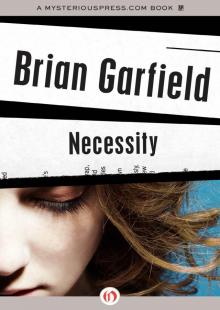 Necessity
Necessity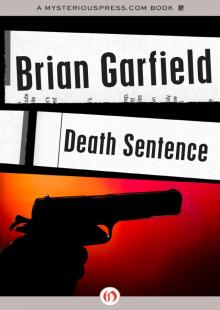 Death Sentence
Death Sentence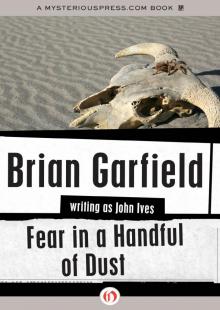 Fear in a Handful of Dust
Fear in a Handful of Dust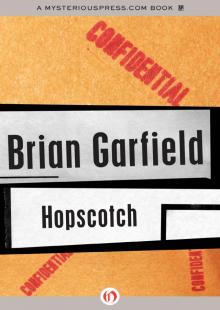 Hopscotch
Hopscotch